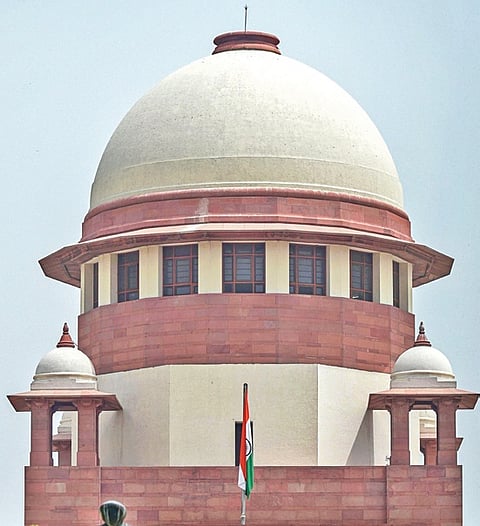India Inc may use trusts, cash for political funding
NEW DELHI: With the Supreme Court scrapping the Electoral Bond scheme, focus now shifts to the alternative mode of election funding by India Inc. Experts say election funding would go back to the pre-2017 era when political donations were made either in cash or through the Electoral Trust Scheme 2013.
Even the Supreme Court in its judgement says Electoral Trusts are better than Electoral Bonds in curbing use of black money or protecting the donors from ‘political consequences’.
The Electoral Trust scheme was launched in 2013 by the Central Board of Direct Taxes (CBDT). An Electoral Trust is formed only for collecting political contributions from donors. More than one individual or company can contribute to electoral trust, which can then donate to more than one party. However, the information about individuals or companies contributed to which political parties is not disclosed.
Under the scheme, the political party receiving the donation must issue a receipt. Other details like the party’s PAN, registration number and name and designation of the person signing the receipt should also be made available to the donor.
Under the Electoral Trust Scheme, voters/parties would know the name of the donors (who make donations over Rs 20,000) but not the parties they donated to. While in the case of Electoral Bonds, the names of those donating through electoral bonds are not required to be revealed, no matter how large the sum is.
Bharti-backed Prudent Electoral Trust is the biggest Electoral Trust and has made 88% of the total donations made in the past 10 years. In the 10 year to 2022-23, donations to the tune of Rs 2,560 crore were made through Electoral Trusts, while over Rs 9,000 crore in political donations were made through electoral bonds from 2017-18 to 2021-22. According to Supreme Court Lawyer Virag Gupta, the political donation scene would go back to the pre-2017 regime, but with some changes.
“After the launch of Electoral Bonds, the government had removed the cap that barred companies from donating more than 7.5% of their average net profit to a political party. This led to even loss-making companies making political donations. This may also change after the SC verdict,” says Virag Gupta.
Former chairman of IBBI, ex-member CCI and Sebi, MS Sahoo, says that political parties could also get registered as social enterprises, and raise money by making public issues of zero principal zero coupon bonds, which could be listed on social stock exchanges. However, he says political parties would be subjected to regulatory discipline associated with listing of securities.
Poll funding in focus
1 Electoral Trust scheme was launched in 2013 by the Central Board of Direct Taxes for collecting political contributions from donors. Focus turns to it as SC termed Electoral Bonds unconstitutional
2 More than one individual or company can contribute to electoral trust, which can then donate to more than one party for electoral funding
3 Experts say election funding would go back to the pre-2017 era when political donations were made either in cash or through the Electoral Trust Scheme 2013
4 Under the Electoral Trust Scheme, voters/parties would know the name of the donors (who make donations over `20,000) but not the parties they donated to. In the case of Electoral Bonds, names of donator are not required to be revealed

